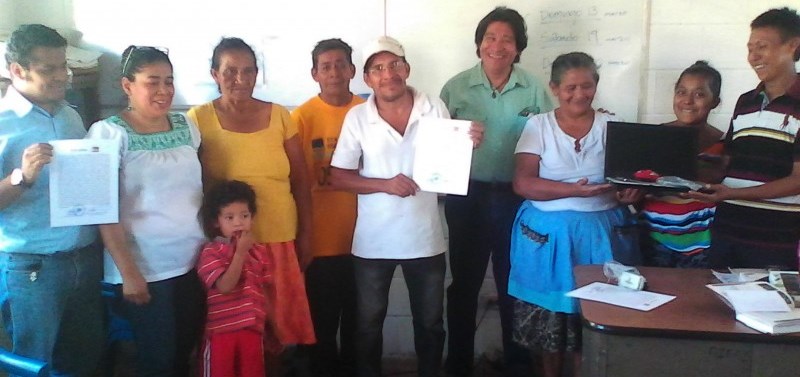According to the United Nations Educational, Scientific and Cultural Organization (UNESCO), it is estimated that half of the 6,000 languages spoken today will disappear by the end of this century. Although approximately 17 percent of the population in El Salvador is Indigenous, there is a lack of public policies to strengthen the cultural identity, languages, and respect for the rights of the Indigenous communities on a national level.
In the Constitution of the Republic of El Salvador, Article 62 says: “The native languages spoken in the national territory are part of the cultural heritage and shall be preserved, disseminated and respected.”
On February 26, 2016, the Salvadoran National Coordinating Indigenous Council (CCNIS, for its initials in Spanish) started an unprecedented process of revitalizing the Potón and Pisbi languages in El Salvador, with the aim to promote the identity of the Lenca and Kakawira peoples through their languages.
The project, which is funded by the Rising Voices organization, involves several young indigenous people who develop digital materials for the promotion of languages in their communities, which have traditionally been marginalized. Participants were taught the use of technological tools that will enable them to convert printed language teaching materials into a digital format. In addition, the beneficiaries will be trained in Indigenous Communication strategies and editing programs that will allow them to continue with the rescue, strengthening and revitalization of their native languages.
The CCNIS considers that with the disappearance of unwritten and undocumented languages, humanity would not only lose a great cultural richness, but also ancestral knowledge contained, in particular, in the indigenous languages. In addition, the Indigenous Peoples must meet the new challenges brought by the use of technologies, meaning that they must have a strategy to strengthen and disseminate their cultural practices, and their social and community processes.

